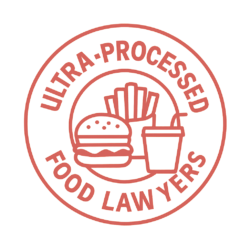Nestlé diabetes lawsuits target one of the largest food manufacturers in the world. The company owns more than 2,000 brands globally and operates in over 180 countries. In the U.S., Nestlé markets a wide range of frozen meals, beverages, snacks, and infant formulas.
The business positions itself as a leader in nutrition and wellness. However, many of its ultra-processed foods (UPF) face scrutiny for contributing to public health issues. Click here to learn more about action being taken by our UPF lawyers.
Nestlé Corporate Information
Headquarters: Arlington, Virginia
Parent Company: Nestlé S.A. (Switzerland)
Founded: 1866 (U.S. operations began in the early 1900s)
Industry: Food and Beverage Manufacturing
Employees: Over 270,000 globally
U.S. Brands: Hot Pockets, Lean Cuisine, Stouffer’s, Nesquik, DiGiorno, Gerber
Nestle Controversies & Litigation:
-
Use of misleading health claims on packaging
-
High sodium and sugar in products marketed to children and families
-
Multiple lawsuits over deceptive marketing in Hot Pockets and Nesquik
-
Criticism from health experts over sodium levels in frozen meals exceeding daily recommended intake

Nestle Diabetes Lawsuit Targets Multiple Brands:
Nestlé products are marketed as nutritious or balanced. In reality, many contain emulsifiers, stabilizers, and hydrogenated oils. Some products exceed daily sodium recommendations in a single serving.
-
Hot Pockets lawsuits claim these microwaveable snacks contain enriched white flour, processed meats, preservatives (like BHA and BHT), and artificial flavoring.
-
Lean Cuisine lawsuits highlight that the meals are marketed as healthy. However, many meals contain sodium levels above recommended limits. Further, Lean Cuisine contains modified food starch, maltodextrin, and disodium inosinate.
-
Stouffer’s lawsuits assert the frozen entrees rely on processed cheese, soybean oil, and anti-caking agents. These include customer favorites such as their lasagna and mac & cheese.
-
Nesquik lawsuits note flavored powders and syrups contain added sugars, artificial colors (e.g., Red 40), and emulsifiers.
Follow this link for Nestle’s complete brand list.
Feeding Children and Infants
Class action style claims also assert Nestlé targets children with bright packaging and cartoon branding. Further, they have aggressively marketed children’s snacks and cereals through school-based campaigns and online games.
Moreover, Nestle owns Gerber, placing it in a conflicted position as a producer of both infant nutrition and ultra-processed children’s snacks.

